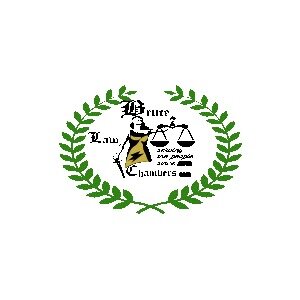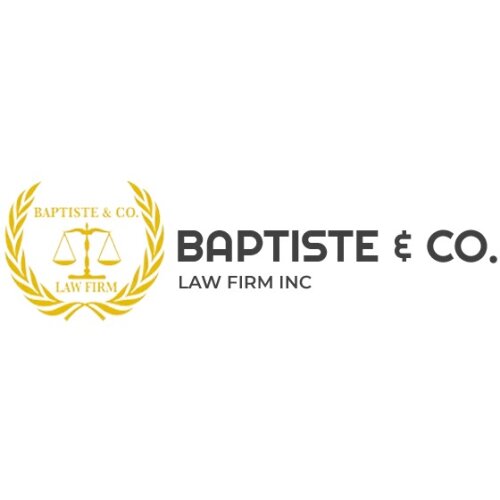Best Public-Private Partnerships (PPP) Lawyers in Saint Vincent and the Grenadines
Share your needs with us, get contacted by law firms.
Free. Takes 2 min.
Or refine your search by selecting a city:
List of the best lawyers in Saint Vincent and the Grenadines
About Public-Private Partnerships (PPP) Law in Saint Vincent and the Grenadines
Public-Private Partnerships (PPP) refer to collaborations between government entities and private sector companies to finance, build, and operate projects that serve the public interest. These projects may include infrastructure such as roads, energy facilities, water supply systems, healthcare institutions, and schools. In Saint Vincent and the Grenadines, PPPs are increasingly recognized as a viable approach to bridge the infrastructure development gap while leveraging private sector expertise and capital. However, engaging in PPPs requires a careful understanding of both legal frameworks and the broader regulatory environment in the country.
Why You May Need a Lawyer
PPP projects are inherently complex, involving detailed contracts, risk sharing, and regulatory compliance. Engaging a lawyer is recommended in several situations, including:
- Drafting, reviewing, or negotiating PPP agreements
- Ensuring compliance with local laws and regulatory processes
- Advising on risk allocation, financing structures, and liabilities
- Handling disputes or claims arising during the project lifecycle
- Managing procurement and tendering processes fairly and within legal requirements
- Assessing investment protection and recourse under international treaties
- Providing guidance on tax implications and land use/ownership issues
Local Laws Overview
Saint Vincent and the Grenadines does not currently have a dedicated, comprehensive PPP Act like some other jurisdictions, but public-private collaboration is governed through a combination of sector-specific statutes, government policy frameworks, public procurement laws, and general contract law. Key legal aspects include:
- Public Procurement: PPPs typically fall under the Public Procurement Act and its associated regulations, which outline processes for competitive bidding, transparency, and conflict-of-interest management.
- Government Oversight: The Ministry of Finance, Economic Planning, and Information Technology often plays a central role in evaluating and approving PPP projects, especially those involving significant public resources.
- Sectors-Specific Legislation: Laws applicable to construction, energy, health, transportation, and utilities may impact the structure and implementation of PPP agreements.
- Land and Property Law: Projects that involve leasing or transferring public land require adherence to statutory procedures and approvals.
- Contract Law: Contractual terms between parties must be clear, enforceable, and consistent with local legal principles.
- Environmental and Social Compliance: Environmental impact assessments, zoning, and community stakeholder consultations may be statutory requirements for certain projects.
Since PPP legal frameworks may evolve and can be sector-dependent, up-to-date legal advice is crucial before proceeding.
Frequently Asked Questions
What types of projects are usually developed as PPPs in Saint Vincent and the Grenadines?
Typical PPP projects include infrastructure development such as ports, energy plants, water systems, healthcare facilities, roads, and tourism amenities.
Does Saint Vincent and the Grenadines have a dedicated PPP law?
There is currently no standalone PPP Act, but local laws and policies, including public procurement statutes and sector-specific regulations, apply to PPPs.
How does the government select private partners for PPP projects?
The government generally uses competitive bidding processes as mandated by the Public Procurement Act to ensure fairness, transparency, and value for money.
What legal documents are essential in a PPP agreement?
Key documents include project contracts, risk allocation schedules, financing agreements, performance guarantees, and any required permits or licenses.
Can foreign investors participate in PPPs?
Yes, foreign investors may participate, subject to compliance with local laws on investment, ownership, and regulatory approvals.
How is risk allocated between the public and private parties?
Risk allocation depends on the nature of the project and negotiations between parties. Common forms include risks related to construction, operation, financing, market demand, and legal changes.
Who is responsible for land acquisition in PPP projects?
The responsibility for land acquisition typically rests with the government, but specific arrangements may be outlined in the PPP agreement.
What dispute resolution mechanisms are available for PPPs?
PPP contracts often specify dispute resolution through local courts, arbitration, or alternative dispute resolution mechanisms agreed upon by both parties.
Are there tax incentives for PPP projects?
Tax incentives may be available for strategic projects, either through different investment promotion arrangements or negotiated terms in the PPP contract.
How can I ensure my PPP project complies with all relevant laws?
Seek professional legal advice to conduct a comprehensive due diligence process, review all contracts, and ensure adherence to legal, environmental, and regulatory requirements.
Additional Resources
If you are seeking guidance or support for PPP projects in Saint Vincent and the Grenadines, consider contacting the following resources:
- Ministry of Finance, Economic Planning, and Information Technology: Key contact for policy, procurement, and project approval matters
- Invest SVG: Governmental agency supporting investment and private sector engagement
- Chamber of Commerce and Industry: Provides insight into private sector perspectives on PPPs
- St. Vincent and the Grenadines Bar Association: Source for finding qualified attorneys specializing in PPP or infrastructure law
- Legal Aid and Advice Center: For individuals or small businesses seeking initial guidance
Next Steps
If you are considering entering into a Public-Private Partnership in Saint Vincent and the Grenadines, it is highly advisable to consult with a legal professional experienced in PPP transactions. Start by identifying your project objectives and gathering all relevant documentation. Schedule a consultation with a qualified attorney who can help you understand your legal obligations, review or prepare contractual agreements, and guide you through due diligence and compliance processes. Taking prompt legal advice from the outset can help safeguard your interests and ensure your PPP initiative proceeds smoothly and successfully.
Lawzana helps you find the best lawyers and law firms in Saint Vincent and the Grenadines through a curated and pre-screened list of qualified legal professionals. Our platform offers rankings and detailed profiles of attorneys and law firms, allowing you to compare based on practice areas, including Public-Private Partnerships (PPP), experience, and client feedback.
Each profile includes a description of the firm's areas of practice, client reviews, team members and partners, year of establishment, spoken languages, office locations, contact information, social media presence, and any published articles or resources. Most firms on our platform speak English and are experienced in both local and international legal matters.
Get a quote from top-rated law firms in Saint Vincent and the Grenadines — quickly, securely, and without unnecessary hassle.
Disclaimer:
The information provided on this page is for general informational purposes only and does not constitute legal advice. While we strive to ensure the accuracy and relevance of the content, legal information may change over time, and interpretations of the law can vary. You should always consult with a qualified legal professional for advice specific to your situation.
We disclaim all liability for actions taken or not taken based on the content of this page. If you believe any information is incorrect or outdated, please contact us, and we will review and update it where appropriate.
Browse public-private partnerships (ppp) law firms by city in Saint Vincent and the Grenadines
Refine your search by selecting a city.











